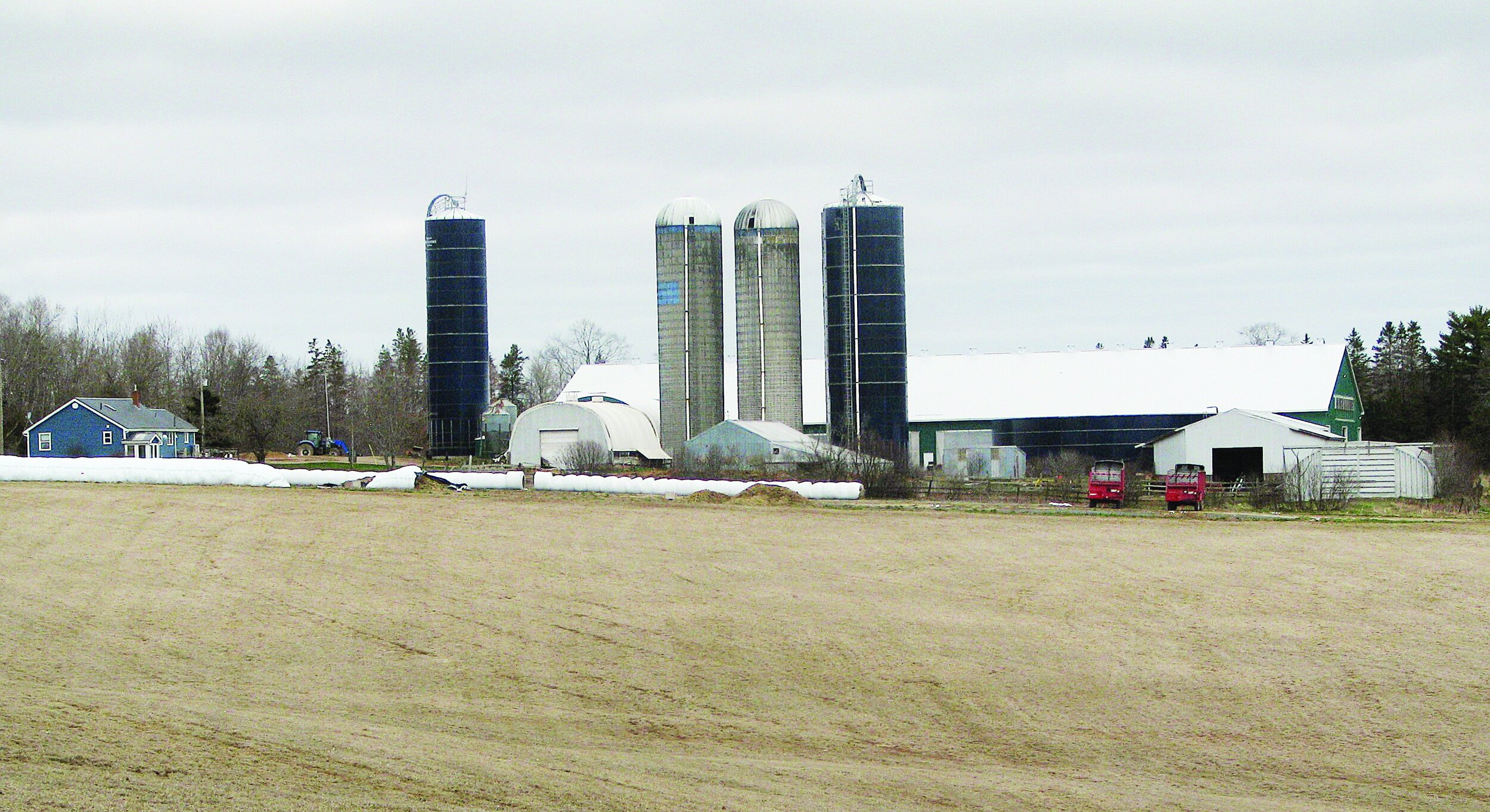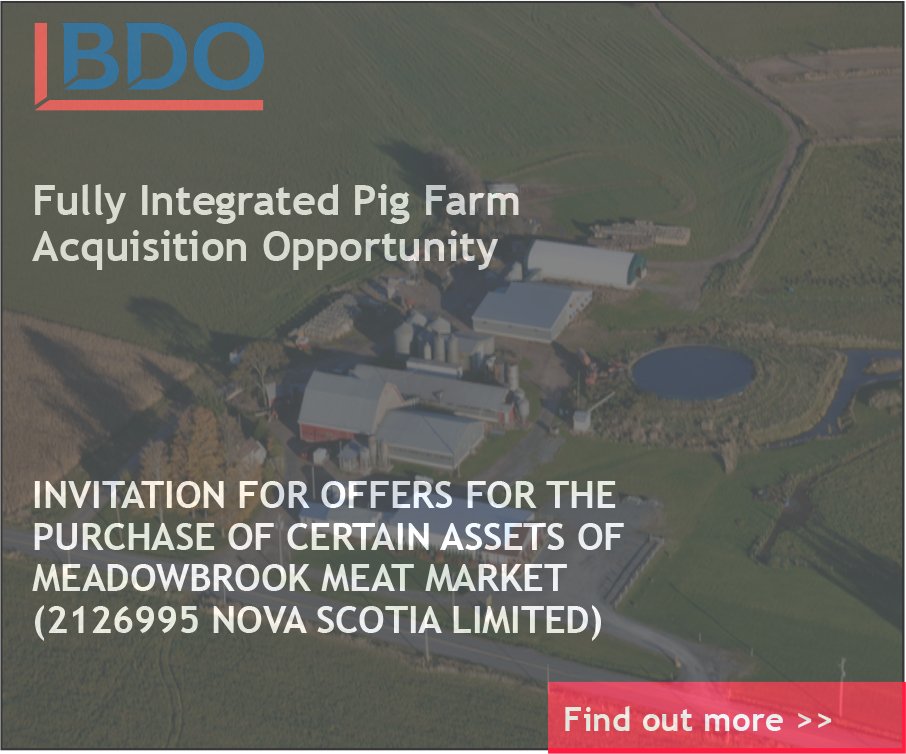Deep-rooted N.S. dairy farm rebounded following tragic fire
/by Dan Woolley
Stephen and Jenna Burris’s Green Oaks Dairy Farm in Green Oaks, Colchester County, N.S., can trace its farm family roots back to its establishment as a farm in 1785.
In 1990, Stephen’s father Phillip incorporated the farm. In 2016, Stephen and Jenna undertook an intergenerational farm transfer with Phillip.
In June 2015, fire destroyed the Green Oaks barn, killing all the cows except one in a milking herd of 125 head. Since then, the farm has rebounded.
On June 15, 2017, the Burris family hosted a tour of their new state-of-the-art steel barn that replaced the barn that burned down two years earlier. The massive new barn is equipped with four GEA robotic milkers.
Not only has the milking herd grown to 180 cows but the total herd has expanded from 300 head in 2015 to 375 today. “We slowly rebuilt the herd with our own young animals that reached milking age,” said Jenna.
They also bought some cows from farms in Nova Scotia and New Brunswick and purchased three truckloads of dairy cattle from the United States.
Their herd today is primarily Holstein with some Jersey and Montbéliarde stock crossbred with Holstein.
The Burris family also expanded their farm’s cleared acreage from 480 to 750 acres with the purchase of a nearby dairy farm in 2018. They have another 100 acres of rented pasture.
The new barn is also equipped with a GEA manure press. The press squeezes liquid out of the manure, leaving undigested plant fibre that is then shredded for dried bedding material for the cows. The bedding is changed three times a week. “The cows love it,” said Stephen.
He said this bedding is much more economical than other bedding material, observing, “We have zero bedding costs.”
The strained liquid manure is high in nitrogen and nutritional value. “We are getting more value out of the manure as a fertilizer,” said Stephen.
He said they’re planning for the farm’s future growth and will buy quota when it becomes available, adding, “We will try to grow better forages and work with the cows to make more money and spend less.”
Jenna noted that they feed their cows a ration mostly of corn and silage composed of clover, alfalfa, and grasses.
Stephen estimates the farm generates annual revenue of about $2.3 million while employing three full-time and two part-time workers, including his father Phillip.
Stephen also discussed the Dairy Direct Payment Program. In 2019-20, Canadian dairy farmers began receiving the first of four annual direct payments from the $1.75-billion program to compensate them for “market access concessions” made under the CETA and CPTPP trade agreements.
“We definitely appreciate the compensation from the government,” said Stephen. “At the same time, it doesn’t come close to making up the market share they gave up to create the trade deals. If we had that market share back, we would make more money per year.”
The federal government recently stated that it remains committed to negotiating full and fair compensation to dairy farmers for the Canada-United States-Mexico Agreement (CUSMA).
Canadian supply management controls milk production so there’s no milk surplus. “That is the beauty of our system,” said Stephen.
He noted that U.S. dairy overproduction creates a milk surplus greater in volume than what the Canadian milk market produces. “A lot of Wisconsin farmers are trying to adopt a system like ours,” he said.
Stephen said a U.S. dairy processor could call a farmer one day and say they’re not going to pick up that farmer’s milk anymore. “At least we have our milk picked up, although the price fluctuates monthly,” he said.
Jenna also operates her own farm business, Green Oaks Nubians. She started it as a hobby but about five years ago she started milking her purebred Nubian dairy goats and processing their milk into soaps and small-batch lotions in her kitchen.
The demand for her goat milk products has been such that she’s starting a workshop this spring. Until last spring, she sold her soaps and lotions at the Truro Farmers’ Market. Now, as an alternative, she’s switched mainly to online sales.
She usually has a herd of 10 to 12 goats, although her herd size doubled this spring with 12 newborn kids. “They all have homes to go to once they are weaned,” she said.
Jenna and Stephen have two young daughters, three-year-old Marett and eight-month-old Adelaide.











